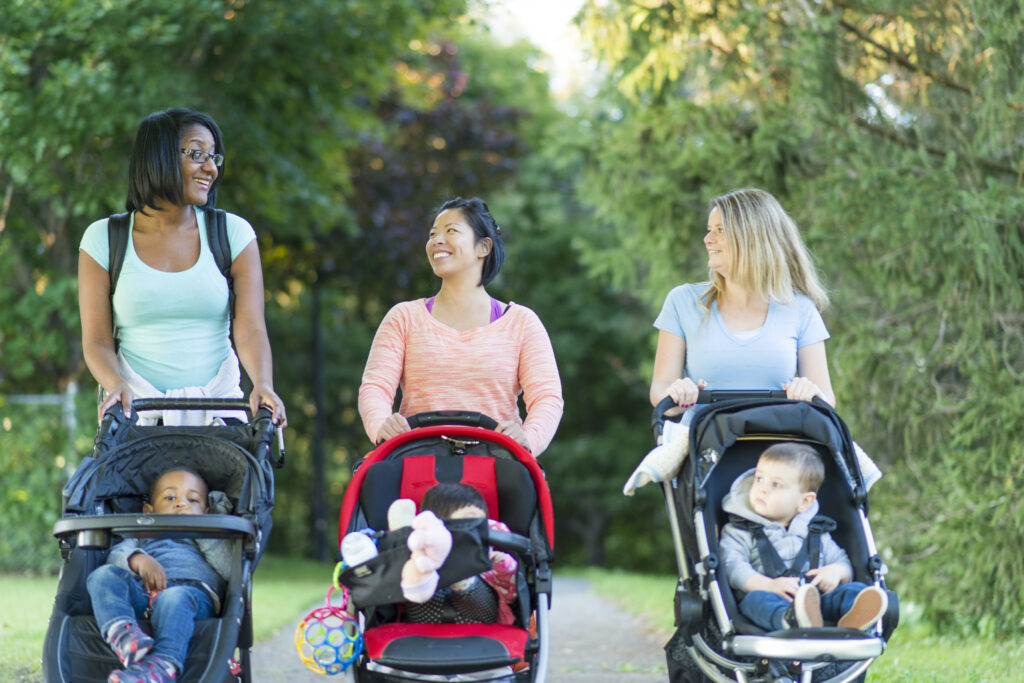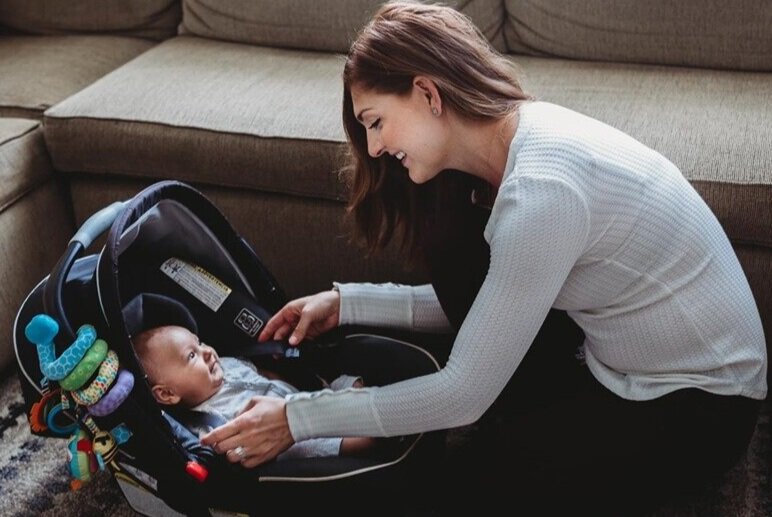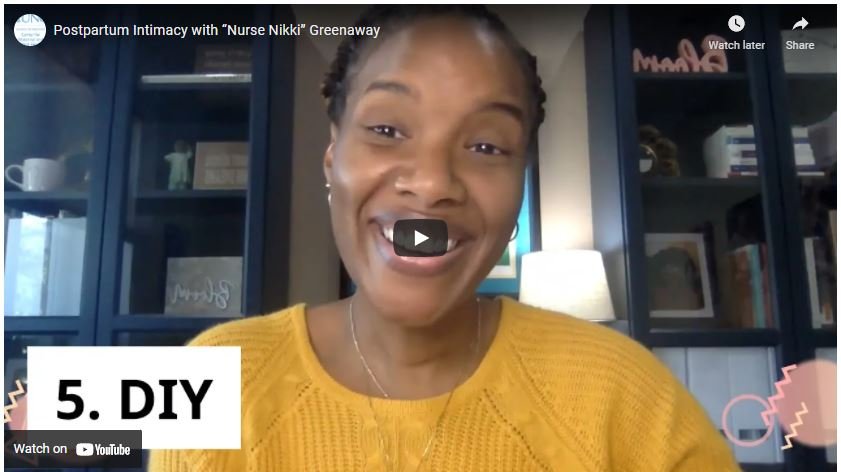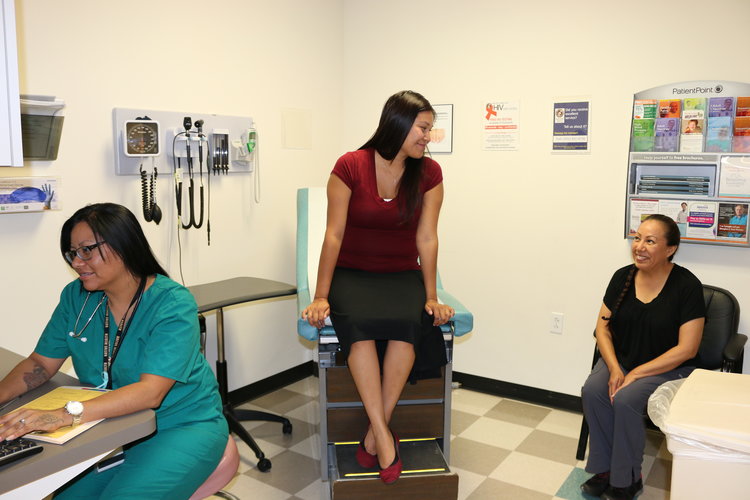
Movement is an important part of healing from pregnancy and childbirth. Exercise keeps bowels moving, eases stiffness, helps mood, and even improves the quality of sleep (when you can get it!).
How much and how new moms exercise is influenced by how active they were during pregnancy and the way baby was delivered. In general, after a physically uncomplicated vaginal delivery, women can begin or resume an exercise program as soon as they feel able to do so. Following a c-section, as long as there aren’t any post-operation complications, women can ease into physical activity by walking and stretching and potentially resume full exercise around 4-6 weeks postpartum. Be sure to talk with your provider.
The way women feel in their bodies after birth can be empowering and also hard. Although it is part of being human, it can be discouraging to “look pregnant” after the baby has been born. Women’s bodies grew a person for up to nine months and it may take that amount of time — nine months —to change again. Sometimes language is used about women “bouncing back,” but as mothers we are forever changed. Sometimes we see that on the outside. That is ok and many people find joy in celebrating their shape, marks, and abilities postpartum.
A common physical condition among postpartum women is Diastasis Recti. This is muscle separation of your abs. Generally, the muscles come back together over time without intervention. Sometimes when the muscles have a hard time coming back together, it will cause a pooch appearance in your stomach and can even be so severe that it is similar to a hernia. For more information and pictures, click here. Core strengthening exercises can help with your recovery.
Pelvic floor is often something birthing people will need to strengthen after childbirth. There are pelvic floor therapists and exercises that will strengthen your bottom and pelvic area. It is common to have a weakened pelvic floor, which impacts things like urinary incontinence, walking, and more. You can learn more about postpartum occupational and pelvic therapy here.
Over the course of your postpartum care, ask health care provider for guidance on the ways you can support your mind and body.
Things that may help you feel well:
- Drink plenty of water. Have a container of water next to you as often as possible.
- Start your postpartum journey with gentle walks – in your neighborhood, with a community group, or inside a local mall.
- Consider wearing a belly band, to support your back and abdominal muscles while they are shifting back into place.
- When you wear a bra, soft support such as a nursing bra should be adequate for light exercise. For more breast support such as with sports bras, it can be a challenge to find the right fit. Your breast size will continue to change over the 4th Trimester and beyond and also trying on a bra can be hard. Sales associates can help with fittings. If you are lactating, you might bring breast pads for the changing room.
- If you are breastfeeding, current studies support the benefits of exercise in the postpartum period without a negative impact on milk production. If you are exercising a great deal you may want to increase your intake of healthy calories by 500 per day.
- Urinary incontinence can make many women stay away from exercise. Pelvic floor exercises can help (Kegels). Try peeing before you leave for a walk, and wear a pad just in case.
- Consider starting with some simple yoga to help you stretch and breathe. Deep breaths, shoulder and neck rolls can help with the tension. When you feel ready – and have the support of your health care provider – you might want to try some exercises that are tailored for postpartum women. Many of these exercises are available online so you can do them in your home at your convenience.
- If you were someone who exercised a lot before pregnancy and delivery, be patient and kind to yourself during the postpartum period. It can take time for your body to realign after childbirth.
- As you start to feel better, national guidelines for physical activity include about 20 minutes of movement most days of the week. It can be hard for new moms to find the time, but combining this with baby walks or playground visits can help everyone be happy and well.
Additional Resources to Explore:
- The Centers for Disease Control and Prevention has some good resources around weight, nutrition, and physical activity.
- Pelvic Floor Information on NewMomHealth
- Taking Care of You Postpartum Booklet




